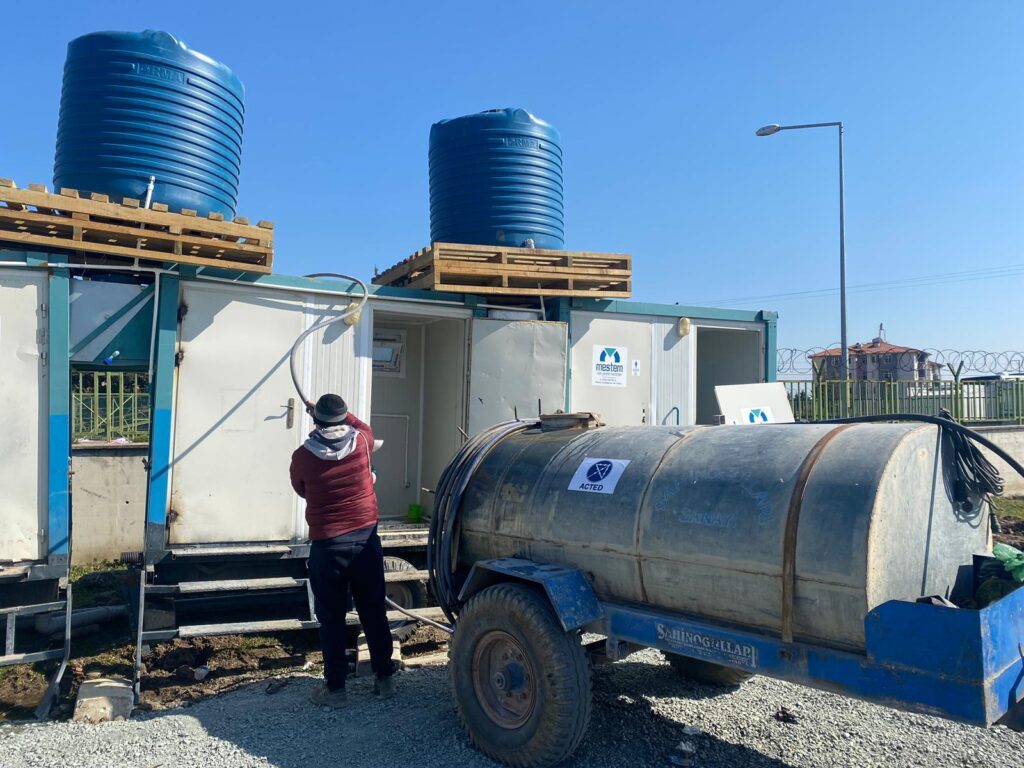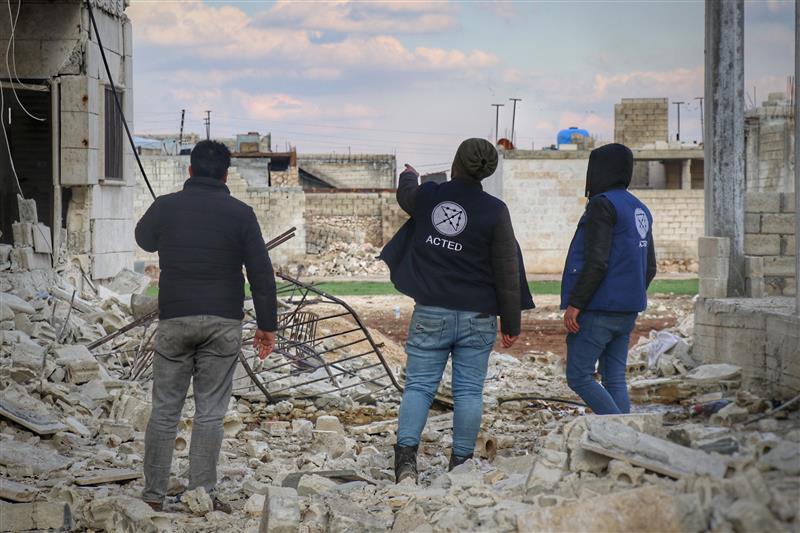On Monday February 6, 2023, two earthquakes struck Türkiye and Syria, causing a heavy human loss. Nearly 55,000 people died in the earthquake. Almost half a year after the shock, 1.7 million persons are still living in informal settlements following the disaster. The majority lives in tents, with no or poor access to basic goods and services.
Present in both Türkiye and Syria since 2012, mainly to respond to the needs of persons affected by the Syrian conflict, Acted sent its emergency team on site in the aftermath of the disaster. Today, Acted’s teams continue to bring assistance to earthquake-affected persons with the support of both its international and local partners.
In southern Türkiye, the home to thousands of Syrian refugees, Acted has worked to meet the basic needs of more than 100,000 persons affected by displacement. Our teams have distributed hygiene and food kits, donated shelter kits such as mattresses, blankets or lamps and enabled the provision of drinkable water thought water trucking activities to contain the spread of water-borne diseases. Acted also has worked to support the coordination efforts in informal sites and to strengthen information sharing for newly displaced persons, in close coordination with the Turkish local authorities, AFAD.


Acted and CESVI ensure access to hygiene and food for displaced persons in southeastern Türkiye
Thanks to CESVI’s support and in partnership with Alliance2015, Acted was able to provide vital assistance to affected communities in the most affected provinces of Hatay, Kahramanmaras and Adiyaman. Acted and CESVI distributed food baskets with pasta, rice, oil, red lentils, and other food of high nutritional value, as well as hygiene kits that included soap, feminine hygiene products and baby diapers. More than 6,000 persons could benefit from these distributions.
In Syria, Acted provided multi-purpose cash assistance, helping up to 47,000 persons to meet their necessities, and enabling them to self-prioritize their needs. Acted also worked on bringing safe and clean water to Syrian affected by the earthquakes, and living in camps, collective centers, or villages, through water trucking activities and the rehabilitation of water points.
Restoring livelihoods and building long-term resilience
In a country already affected by long-standing humanitarian crisis, our teams worked to promote job opportunities, by creating short term jobs in the Alep governorate, to support the recovery of populations now without a home and who had lost their jobs.


Acted also rehabilitated school infrastructures in Aleppo, benefitting 3,000 students and 120 teachers, and other infrastructures such as a boulangerie, a windmill and health facilities.
Ahmad, administrative director of a health centre in the governorate of Aleppo, tells us about the help he received “After the earthquake, cracks appeared in the walls of the health centre, causing anxiety and fear among the health centre’s staff and patients. Now that rehabilitation works have been done, patients feel safer (…). We hope that the number of people treated at our centre, now that it is safe and accessible, will increase in the future“.
Partnerships to amplify impact
In Türkiye, Acted works in close cooperation with the Turkish authorities, notably the Disaster and Emergency Management Authority of Turkey (AFAD) in each of the intervention provinces, seeking to strengthen and complement their response. In Syria, our teams benefit from good relations with communities and local authorities to respond most efficiently to the needs of displaced persons.
Acted also works with local partners and INGOs on site, and shares information and good practices with notably its Alliance2015 partners such as Welthungerhilfe, People in Need and Concern, also present in both countries to respond to the dire needs of affected persons.

